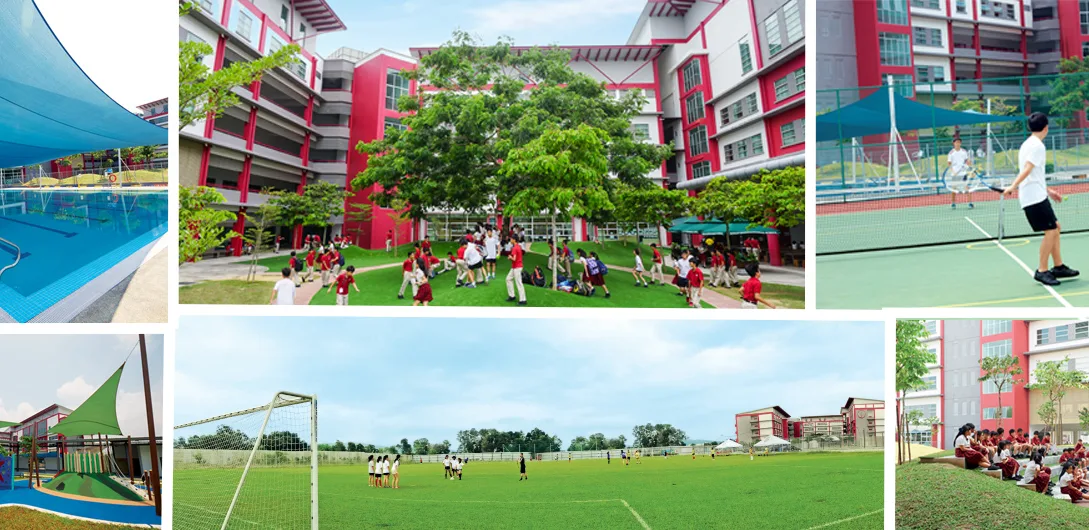Choosing a school for your child is incredibly important. International schools, especially, can help shape their learning journey and propose future opportunities. These schools offer a blend of different cultures, teaching styles, and challenging classes that prepare students for eventual success in a global world. While most schools tend to focus on grades, HELP international school help children become more than that. They strive to make children become good communicators, critical thinkers, and respectful of other cultures. Grades are important but it shouldn’t be their main priority. They need to think about things like how experienced the teachers are, what subjects are taught, the school facilities available, and what activities there are outside of class.
As such, Kuala Lumpur is known as one of the best cities in the world for international education because it has so much diversity from people all over the world. This makes for a really good environment for children to be associated with. There are many schools to choose from, with each offering different kinds of learning styles. Whether you want your child to follow a British or American curriculum or try something like the IB program, international schools of Kuala Lumpur have them all.
3 Benefits of International Education
Cultural Awareness and Global Perspective
As a parent, one of the things you can look forward to is your children getting to meet and learn from people from all over the world. When students interact with classmates who come from different places and have different backgrounds, only then will they understand and appreciate the ways of living. It teaches them to be respectful and open-minded towards other people who are not their kind. Albeit, this kind of exposure may be limited to students who study in traditional public schools where there is not much variety.
Critical Thinking and Adaptability
International schools are a great choice for parents who want their children to start thinking for themselves and learn how to deal with many kinds of situations. They encourage children to question things, come up with creative solutions to problems, and look at information from different angles. In this era where things are always evolving, we need to come up with new ideas to solve problems instead of sticking to old ones because they may not always work. Being in an international school exposes students to different ways of teaching and learning, helping them to become more flexible. It allows them to adapt to new or unexpected situations. They will also learn how to work with all kinds of people, preparing them for success in different parts of their lives.
Preparation for Global Careers and Opportunities
Employers value candidates who have experience with different cultures and a global perspective. It makes them more likely to excel at things they do. An international education will equip students with the skills and knowledge they need to work in international organizations, global industries, and also big companies. On top of that, international schools also offer chances for students to apply for internships abroad and meet people from all over the world. With the job market becoming more competitive, these experiences help them make a head start, opening doors to new experiences and networks.
How to Spot a Good International School
Accreditation
The accreditation acts as a seal of approval that shows a school meets certain quality standards and offers a recognized level of education by the public or the education board. Parents should check if the school is accredited by well-known organizations like the CIS (Council of International Schools or the IBO (International Baccalaureate Organization). Accredited schools stick to high academic standards and are regularly checked to make sure their standards are upheld. This gives parents peace of mind knowing the school is trustworthy and that they care about providing top-notch education.
Curriculum
In simple words, the curriculum is what your child will be learning at school. This is important because it shapes their whole educational experience and future opportunities. Parents should take into consideration whether the subjects and way of teaching match what their child wants to learn and do in the future. In this case, the best thing to do is choose something your child would like and not try to force something onto them. International schools offer different options like CIE (Cambridge International Examinations) or national curriculums like the American or British ones. It is pertinent to look at how flexible and challenging the curriculum is and if it covers any topics that would help your child succeed later on.
Faculty Qualifications
The teachers at school really do play a factor in how well kids learn. In this era, it is pointless to shove directions and expect students to follow them. They have thoughts of their own and it’s up to these teachers to cultivate them. Parents should also ask about what kind of qualifications and experience the teachers have and if they have had the chances to learn and grow professionally. Good teachers will usually have the right education and training and they have taught in different places before. It would be best if the teachers come from different backgrounds as this diversified teaching methods, making the process of learning more interesting and welcoming for everyone.
Student-Teacher Ratio
Last but not least, the best international school in KL would have the perfect student to teacher ratio. This shows how many students there are for each teacher in class or school. When there are fewer students for each teacher, the quality of teaching is higher. Each student can get more attention and help from their teacher. This leads to a more personalized learning experience and ultimately better grades if the teachers focus on students who require assistance the most. International schools are able to find a good balance between having enough teachers from the number of students. This ensures that there are enough resources and staffs to support everyone
Before we end this topic of discussion, we shall provide you with a checklist that may assist you in evaluating and comparing schools. Here are some of the questions to check off your list.
Diversity and Inclusivity
- Are there students and teachers from different countries, cultures, and backgrounds at the school?
- Does the school take action to make everyone feel included and valued through events and activities?
Innovation and Technology Integration
- How much does the school integrate technology in teaching and learning?
- Are there any programs and initiatives aimed at enhancing 21st century skills?
Community Engagement and Support
- How does the school engage with parents, alumni, and the local community?
- How much can parents get involved in school activities, share thoughts, and work with the community?
Career Preparation
- How does the school help students get ready for their transition to higher education in the future?
- Are there career counseling services, partnerships with universities and industries, or internship opportunities.







